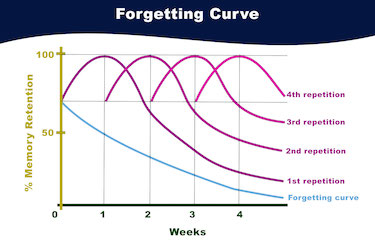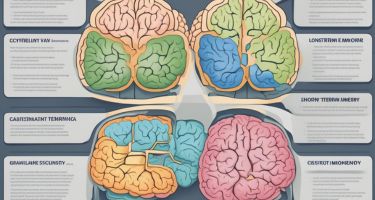Stress affects many aspects of our lives, and its impact on memory is a significant area of concern for us. Research shows a strong link between high levels of stress and memory loss, suggesting that chronic stress can impair our brain function. Knowing how stress interacts with our cognitive abilities can help us navigate everyday challenges more effectively.

As we delve into this topic, we will explore how different types of stress influence our memory and the mechanisms behind these effects. It’s crucial for us to understand how lifestyle factors and prolonged stress can contribute to cognitive decline, so we can adopt better habits and coping strategies.
By recognising the implications of stress on our memory, we can take action to protect our brain function and improve our overall quality of life. This article offers insights into managing stress and its effects, paving the way for better memory health and cognitive performance.
Key Takeaways
- High levels of stress correlate with memory impairment.
- Lifestyle choices play a critical role in our cognitive health.
- Effective coping strategies can mitigate stress-related memory loss.
Understanding Stress

Stress affects everyone differently, and knowing the types of stress and how our body reacts can help us manage it better. Recognising these factors is essential for understanding the impact stress has on our mental health, particularly regarding memory.
Types of Stress: Acute vs. Chronic
Stress can be classified into two main types: acute stress and chronic stress.
-
Acute stress is short-term and often occurs in response to a specific event, such as a deadline or an exam. This type of stress can be beneficial, as it helps us stay alert and focused.
-
Chronic stress, on the other hand, lasts for a longer period. It often stems from ongoing situations, like financial difficulties or relationship problems. Chronic stress can be damaging to our mental and physical health, leading to issues like anxiety and memory loss.
Understanding the difference between these stresses helps us recognise when we need to take action to manage our mental health.
The Stress Response and Cortisol
When we experience stress, our body goes into a state of fight-or-flight. During this response, hormones are released, including cortisol.
-
Cortisol is known as the stress hormone. It helps manage how our bodies respond to stress and plays a role in various bodily functions.
-
Elevated cortisol levels can benefit us during acute stress by enhancing memory and alertness. However, prolonged high levels, often seen with chronic stress, can impair cognitive function and lead to memory issues.
We should pay attention to our stressors and our body's responses to them. Strategies like mindfulness and exercise can help keep cortisol levels in check and support our memory health.
Memory and the Brain

Memory is a complex process involving several parts of the brain. The hippocampus plays a crucial role in forming new memories, while conditions like anxiety and depression can significantly impact our cognitive functioning.
Role of the Hippocampus in Memory Formation
The hippocampus is a vital area of the brain located in the temporal lobe. It is essential for converting short-term memories into long-term ones. When we learn something new, the information is first processed in the hippocampus, where it gets encoded.
This region helps in navigating through our memories and recalling past experiences. Damage to the hippocampus can lead to memory problems, as seen in conditions like Alzheimer’s disease. Research shows that stress can elevate cortisol levels, which may affect the hippocampus negatively. This can result in issues with memory formation and retrieval.
Impacts of Anxiety and Depression on the Brain
Anxiety and depression can have profound effects on brain function. Both conditions are linked to changes in several brain structures, including the amygdala and the hippocampus. The amygdala is involved in processing emotions and can become overactive during periods of stress.
When we experience anxiety, it often leads to heightened levels of cortisol, which can impair our cognitive abilities. This may result in difficulties with concentration and memory recall. Depression, on the other hand, often leads to reduced hippocampal volume, further affecting our memory processes. Together, these factors can create a cycle of cognitive decline and emotional distress.
Stress and Memory Mechanics

Stress plays a significant role in how we form and retrieve memories. Understanding the mechanics of this connection can help us grasp the impact of stress on both short-term and long-term memory.
How Stress Affects Memory Functions
When we experience stress, our bodies react by releasing hormones like adrenaline and cortisol. These hormones can affect our memory functions in various ways.
In the short term, adrenaline can boost alertness, making it easier to encode new information. This can enhance memory formation.
However, cortisol, released later, can impair the retrieval of memories. Our ability to recall information may suffer when we are under high stress.
Episodic memory, which helps us recall specific events, is particularly vulnerable to stress. We may find it harder to remember details when we are feeling overwhelmed or anxious.
Chronic Stress and Memory Loss Dynamics
Chronic stress is linked to more persistent memory problems. Over time, ongoing stress can lead to damage in the hippocampus, a brain area crucial for memory formation and retrieval.
This damage can cause significant forgetfulness and difficulty in accessing both short-term and long-term memories.
As stress persists, it can affect our cognitive performance, making it hard to focus or learn new information. Studies have shown that individuals under chronic stress may also experience a decrease in the volume of their hippocampus, which further impacts our memory capabilities.
Addressing chronic stress through techniques like mindfulness or exercise may aid in improving memory loss and function.
Lifestyle Factors Influencing Memory Health

We recognise that various lifestyle factors can significantly impact our memory health. Key elements such as sleep, exercise, and diet play vital roles in maintaining our cognitive functions and enhancing overall well-being.
Impact of Sleep on Cognitive Functions
Quality sleep is crucial for our memory and cognitive functions. During sleep, our brains consolidate information, making it easier to recall later. Lack of sleep can lead to difficulties in attention, problem-solving, and remembering information.
To improve sleep quality, we should aim for 7-9 hours of uninterrupted rest each night. Establishing a sleep routine can be beneficial. This includes going to bed and waking up at the same time daily, avoiding screens before bedtime, and creating a comfortable sleep environment.
Additionally, we can incorporate relaxation techniques, such as mindfulness meditation, to help wind down. These methods may enhance our ability to achieve deep, restorative sleep, which is essential for optimal memory function.
Exercise and Brain Health
Regular exercise is another essential component of maintaining cognitive health. Physical activity increases blood flow to the brain, promoting the growth of new neurons and enhancing memory.
We should aim for at least 150 minutes of moderate exercise or 75 minutes of vigorous exercise each week. Activities like walking, running, swimming, or cycling can be effective. Strength training also contributes positively to brain health.
To maximise benefits, we can combine aerobic exercise with activities that require coordination, such as dance or team sports. This combination can stimulate different areas of the brain, fostering overall cognitive enhancement.
Diet, Mindfulness, and Self-care
A healthy diet plays a vital role in our memory health. Foods rich in omega-3 fatty acids, antioxidants, and vitamins can support brain function. Incorporating fish, nuts, berries, and leafy greens into our meals is beneficial.
Mindfulness practices can further enhance our cognitive abilities. Techniques like mindfulness meditation promote focus and reduce stress, which is crucial since stress can negatively affect memory. Setting aside time each day for self-care and mindfulness can help us maintain a balanced emotional state.
Implementing these habits into our daily routines can lead to improved memory health and a brighter cognitive future.
Consequences of Prolonged Stress
Prolonged stress can have serious effects on both cognitive function and mental health. We will examine how chronic stress can lead to mild cognitive impairment and even increase the risk of Alzheimer's disease. Additionally, we will explore how stress is linked to depression, anxiety disorders, and other mental health challenges.
Mild Cognitive Impairment and Alzheimer’s Disease
Chronic stress can contribute to mild cognitive impairment (MCI), which is a noticeable decline in cognitive abilities, such as memory and thinking skills. This condition can be a precursor to more serious issues like Alzheimer’s disease. Research suggests that elevated levels of cortisol, a hormone released during stress, may damage the hippocampus, the brain region responsible for memory.
Individuals experiencing chronic stress often have difficulty concentrating and may forget things more easily. These symptoms can progress, making them more susceptible to developing Alzheimer's disease. It’s crucial to address stress early to help preserve cognitive function and reduce this risk.
Depression, Anxiety Disorders, and Mental Health
Prolonged stress significantly impacts our mental health. Chronic anxiety and traumatic stress can lead to conditions such as depression. Studies indicate that individuals under constant stress are at a higher risk for developing anxiety disorders.
Signs of mental health issues may include persistent sadness, irritability, and physical symptoms like fatigue or insomnia. We need to recognise these signs early, as untreated mental health issues can severely affect our daily lives. Taking steps to manage stress effectively is essential for maintaining mental well-being and cognitive health.
Coping Strategies and Interventions
Stress can have a significant impact on our memory. It is essential to explore effective coping strategies and interventions that can help us manage stress and protect our cognitive functions. Here are some approaches we can take.
Stress Reduction Techniques
Reducing stress is crucial for maintaining our memory health. We can implement various relaxation techniques into our daily routines. Simple activities such as deep breathing exercises can help calm the mind and reduce anxiety.
- Practice deep breathing: Inhale slowly through the nose, hold for a few seconds, and exhale through the mouth. Repeat this several times.
- Meditation and mindfulness: Spending a few minutes a day focusing on the present can improve concentration and reduce stress.
- Physical activity: Engaging in regular exercise can release endorphins, which boost our mood and reduce stress levels.
By prioritising these techniques, we can enhance our ability to handle stress, thus improving our memory.
Professional Help and Support Structures
Sometimes, we may need assistance beyond self-help techniques. Seeking professional help can be beneficial in dealing with stress and memory loss. Therapists can offer coping mechanisms tailored to our needs.
- Counselling and therapy: Engaging in talk therapy can provide strategies for managing stress. It allows us to address underlying issues and develop healthier thought patterns.
- Support groups: Connecting with others facing similar challenges can provide reassurance. These groups create a sense of community and shared experience.
- Regular check-ups: Consulting healthcare professionals can help monitor our mental health and provide recommendations for further support.
Seeking help can lead to improved mental health and enhanced memory function over time.
Lifelong Learning and Cognitive Resilience
Engaging in lifelong learning is an excellent way to boost our cognitive resilience. By continuously acquiring new information, we can strengthen our brain's ability to cope with stress.
- Take up new hobbies: Learning a musical instrument or a new language challenges our brain and keeps our minds active.
- Participate in educational courses: Adult education classes can foster social connections and stimulate our cognitive functions.
- Read regularly: Reading not only provides knowledge but also improves concentration and cognitive skills.
By adopting a mindset of lifelong learning, we can enhance our memory and combat the effects of stress more effectively.
Real-world Implications of Stress on Memory
Stress significantly impacts our memory, leading to various challenges in day-to-day life. This section explores how stress affects our performance in academic and workplace settings, as well as our social interactions during significant life events.
Effects on Academic and Workplace Performance
In academic settings, high stress levels can hinder our concentration and focus. When we experience stress, our cognitive abilities may decline, resulting in short-term memory loss. This can negatively affect our ability to grasp new concepts or retain information during crucial tests.
In workplaces, stress often influences our behaviour. It can lead to decreased productivity and poor decision-making. We may find it hard to remember important details related to projects or tasks. This can result in mistakes that impact our performance and may even affect our professional reputation.
Social Interactions and Life Events
Stress can also play a critical role in our social interactions. During important life events, such as weddings or funerals, we may struggle to fully engage with others. Our memory may falter when recalling faces or conversations, which can strain relationships.
Caregiving situations can bring additional stress. Juggling responsibilities may lead to feelings of overwhelm, impacting our ability to remember essential aspects of our loved ones' needs. This stress compromises not only our memory but also our overall emotional wellbeing, affecting how we connect with family and friends.
Navigating Memory Loss through Healthcare
When we experience memory loss, it’s important to seek help from a healthcare professional. They can provide valuable insights into our cognitive function and help identify underlying causes.
Stress-induced memory loss can arise from various factors, including chronic stress and anxiety. By discussing our concerns with a doctor, we can explore effective management strategies.
We may benefit from comprehensive assessments. These can evaluate our memory and overall cognitive health. Tests might include simple memory exercises or more detailed evaluations to identify specific issues.
If we struggle with panic attacks, it’s crucial to inform our healthcare provider. Panic attacks can escalate stress, further impacting our memory. Understanding the link between our symptoms can help create a tailored approach to treatment.
Practising stress-reduction techniques can also enhance our memory. Engaging in activities like mindfulness, exercise, and balanced nutrition supports our mental well-being.
We should consider consulting a psychologist or therapist. They can offer therapies aimed at improving coping strategies for stress and anxiety, which may help in boosting our cognitive function.
It's key to have open discussions with our healthcare professionals. They can guide us through treatment options and assist in navigating the impact of stress on our memory. Together, we can find a path to better cognitive health.
Frequently Asked Questions
In this section, we address common queries regarding the relationship between stress and memory loss. Understanding these questions can help us navigate the effects of stress on our cognitive functions.
How can one reverse memory impairment resulting from stress?
To reverse memory impairment caused by stress, we can implement techniques such as exercise, mindfulness, and adequate sleep. Regular physical activity boosts blood flow to the brain and promotes neurogenesis, which enhances memory. Mindfulness practices help reduce anxiety and improve focus.
Are the memory deficits caused by stress reversible?
Yes, memory deficits caused by stress are often reversible. When we reduce stress levels and adopt healthy coping strategies, improvements can typically be seen in memory function. Recovery can also depend on the duration and severity of stress experienced.
What are the symptoms associated with memory loss due to stress?
Symptoms of memory loss due to stress may include forgetfulness and difficulty concentrating. We might also experience confusion or an inability to recall recent events. Stress can also affect our attention span and hinder our ability to process new information.
Can enduring stress lead to symptoms similar to dementia?
Enduring stress can indeed lead to symptoms that resemble those of dementia. Prolonged stress may cause significant cognitive decline, affecting short-term memory and daily living. It's crucial to differentiate between stress-induced cognitive issues and true dementia for appropriate management.
In what ways does prolonged stress impact memory?
Prolonged stress adversely affects memory by disrupting the brain's communication pathways. It can lead to the shrinking of areas associated with memory, like the hippocampus. Stress hormones, such as cortisol, also interfere with the formation and retrieval of memories.
What methods exist for regaining memory following a stressful period?
We can regain memory after stress by adopting various methods, including relaxation techniques and cognitive exercises. Engaging in social interactions and maintaining a healthy diet also support brain function. Additionally, professional therapy can help us process stress and improve cognitive health.





















